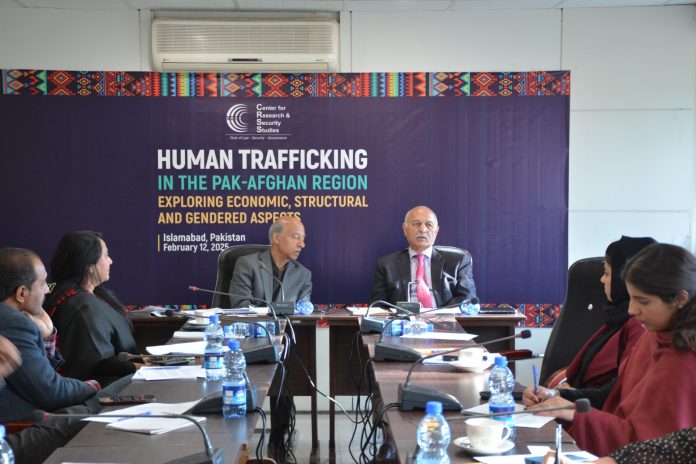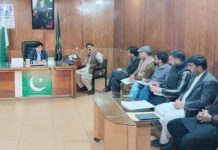If we look at the refugee profile in Pakistan, for the most part, the country has been a model
host for welcoming refugees from different countries. Pakistan has the largest number of
refugees for the longest duration in modern history, not just from Afghanistan but also having
the largest Rohingya and Bengali population, and Somalis as well. They are experiencing better
conditions in Pakistan compared to many other countries in the region, in terms of the
treatment they receive from host communities and authorities.
These remarks were made by Former Senator Mushahid Hussain Syed during the dialogue on
Human Trafficking in Pak-Afghan Region, organized by the Center for Research and Security
Studies (CRSS).
He underlined the need to look at the bigger picture of the issues of human trafficking and
illegal migration to make sense of the scale and magnitude of the problem which has now
become a global concern and having impact on the politics of and relations between several
countries; noting that it was at the core of president trump’s election campaign as the flagship
issue.
He said that foreigners or non-Pakistanis living in Pakistan who have children born in Pakistan
should become Pakistani citizens whether they are Afghans, Rohingyas, or Bengalis. “I believe, if
someone who has been living here for the last 30, 40 years, they are Pakistanis”.
“We must have problems with the regime in Kabul but the Afghans living in Pakistan should not
pay the price”, he said while opposing the forced eviction of refugees on any pretext, noting
that it was morally, legally, and politically wrong.
Pakistan is a big enough country to accommodate people who come here for economic and so
many other reasons. Afghans in Pakistan who worked with US forces in Afghanistan have been
waiting for their visas for the last three years, face prolonged uncertainty, financial hardships,
and legal challenges as they navigate bureaucratic delays and shifting immigration policies.
The issue of Afghans living in Pakistan should be seen as both a legal and humanitarian problem
and not just as the former.
Afghan refugees are not an economic burden on Pakistan, in fact, they are self-sustaining, and
contribute to our economy through their hard work.
The main issue in Pakistan is control over borders and border management where there should
be an interprovincial task force at the central level.
With the senior-most officials of the relevant security agencies sacked after the Greece boat
incident, which had claimed the lives of several Pakistani nationals shows how seriously
Pakistan believes in dealing with the issue of human trafficking.
The executive director of CRSS, Imtiaz Gul said that the devastating back to back boat tragedies
are because of the issue of human trafficking and the vulnerabilities the displaced persons face.
These incidents show that there are not enough checks at home. The issues like human
trafficking should not be submerged with our absorption in and consumption by political issues.
The human traffickers who play with the destinies and dreams of people should not get scot-
free.
The participants of the dialogue noted that the absence or weakening of the rule of law and
corruption are major factors enabling human trafficking in Pakistan and the region. Tackling
human trafficking requires a multi-faceted approach, including sustainable livelihoods,
education, social awareness initiatives, and greater political and social cohesion.
Human trafficking persists because the relevant authorities remain preoccupied elsewhere. It
reflects the decay of human welfare and basic rights. Every moment of ignorance and
negligence costs this region human lives and immense suffering.
The recent tragedies involving migrant boats are not isolated incidents. We must dig deeper
and ask ourselves: why do these individuals take such perilous risks? The answer lies in the lack
of livelihood opportunities and proper guidance at home.
Political and economic instability are key drivers of human trafficking. Combating human
trafficking requires a unified national narrative that is consistently reinforced. Everyone –
governments and citizens alike – must be on board. Illegal migration is largely ignored in
Pakistan—until tragedy strikes.

















